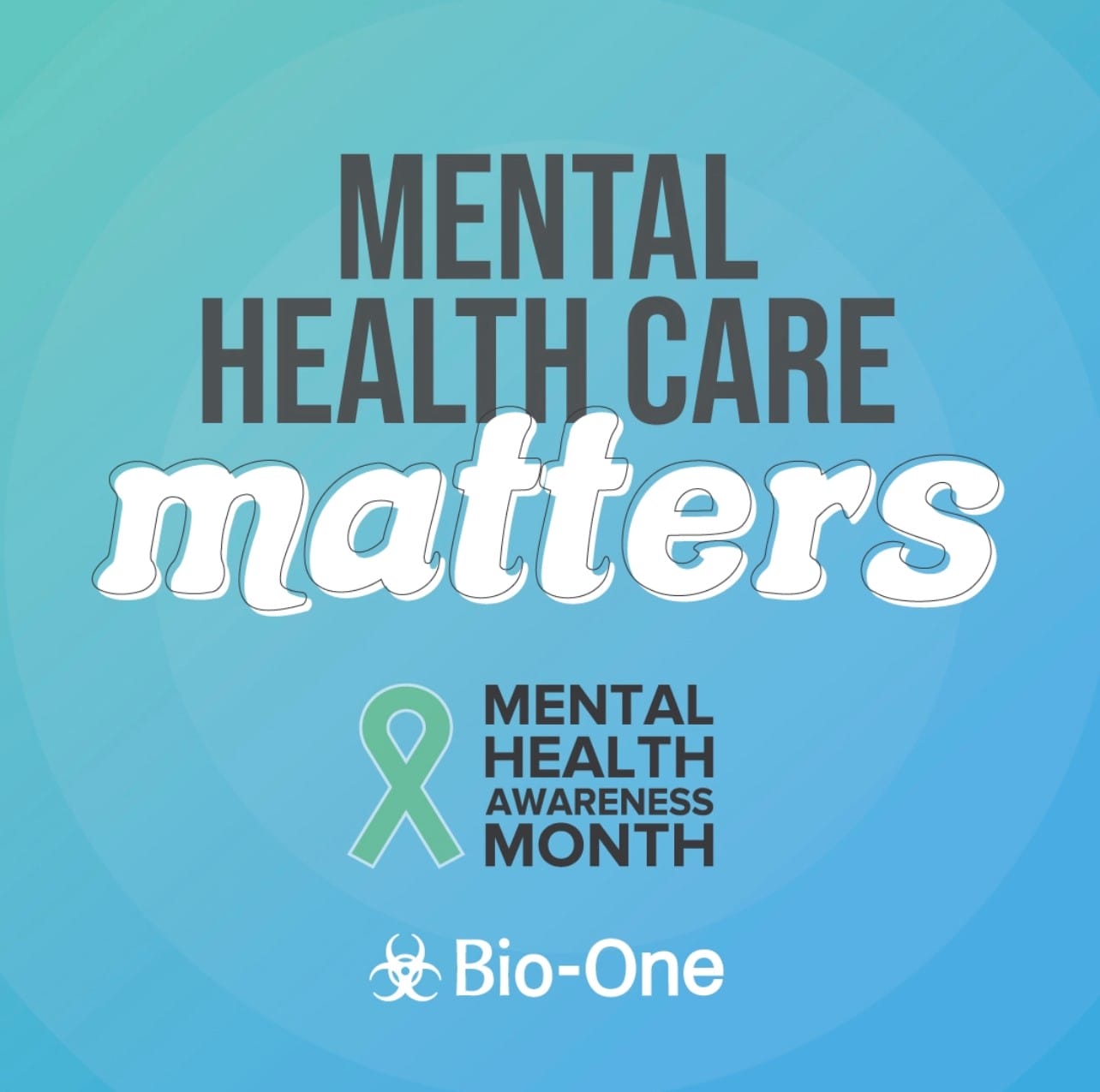
May is Mental Health Awareness Month, a time to recognize the importance of mental health and well-being. Psychological health is a vital part of the overall strength of someone, though it is often overlooked and stigmatized in our society. Mental Health Awareness Month aims to raise awareness, reduce stigma, and provide support for those who may be struggling with psychological issues. We, at Bio-One NW Indianapolis, believe in the motto: "Help First, Business Second". We change clients' lives every day. What may seem like an average job for us, is a huge step for a client to take no matter the situation. Our quick response and quick project completion turnover are life-changing; sometimes as little as a week!
According to the National Institute of Mental Health, approximately one in five adults in the United States experience psychological illness in a given year. Mental illness can take many forms, including anxiety disorders, depression, bipolar disorder, schizophrenia, and post-traumatic stress disorder (PTSD), among others. It can affect anyone regardless of age, gender, ethnicity, or socioeconomic status.
Mental Health Awareness Month provides an opportunity to educate ourselves and others about the illness, and to take action to support those who may be struggling. Here are some ways that you can get involved:
Bio-One NW Indianapolis specializes not only in the technical aspect of cleaning, disinfecting, and disinfecting, but also helping our clients along the way. Our owner, Dr. Richard Weinblatt, a retired police chief, has 40+ experience and knows firsthand how helping people solve their problems can change lives.
Mental Health Awareness Month is an important reminder that it is just as crucial as physical well-being. By raising awareness, reducing the silence, and providing support, we can help those who are struggling with issues to get the help they need and deserve.
If you have any questions you can reach out to us at any time. We are always here to help.
"Help First, Business Second"
24 / 7 / 365
(317) 435-1611
If you or someone you know may be considering suicide, contact the National Suicide Prevention Lifeline at 1-800-273-8255 (en español: 1-888-628-9454; deaf and hard of hearing: dial 711, then 1-800-273-8255) or the Crisis Text Line by texting HOME to 741741.

According to the American Psychiatric Association, suicide is the 10th leading cause of death in the United States and the second leading cause of death (after accidents) for people aged 10 to 34. And according the CDC, published reports from 2020 suggest that the pandemic has had a negative effect on children’s mental health.
“Beginning in April 2020, the proportion of children’s mental health–related ED visits among all pediatric ED visits increased and remained elevated through October. Compared with 2019, the proportion of mental health–related visits for children aged 5–11 and 12–17 years increased approximately 24%. and 31%, respectively.”
Researchers have yet to link recent suicides to the pandemic since 2020 suicide data is not yet available. But on the ground, there's growing concern.
The February 2021 NPR article “Child Psychiatrists Warn That The Pandemic May Be Driving Up Kids' Suicide Risk” explores possible correlation. Takeaways include:
For ways to help kids at risk, NPR encourages readers to read Part 2 of their story, “Make Space, Listen, Offer Hope: How To Help A Child At Risk Of Suicide”.
Suicide Prevention Resources
Survivors of Suicide – What to Do Next
The loss of a loved one by suicide can be a deeply painful and traumatizing experience; however, it’s important to know that everyone experiences suicide loss in their own way. As you begin the process of healing, consider reading the American Foundation for Suicide Prevention’s guide for to talk to others about what happened and identify ways to take care of yourself.
Additionally, if you have lost someone to suicide, there may be a cleanup required. There is no need for family or friends of the loved one to be further traumatized or overwhelmed with trying to figure out how to clean the impacted area. Bio-One is here for you. Learn more about Bio-One’s suicide remediation services.
If you or someone you know may be considering suicide, contact the National Suicide Prevention Lifeline at 1-800-273-8255 (en español: 1-888-628-9454; deaf and hard of hearing: dial 711, then 1-800-273-8255) or the Crisis Text Line by texting HOME to 741741.